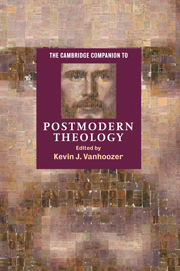11 - The Trinity
from Part 2 - Christian doctrine in postmodern perspective
Published online by Cambridge University Press: 28 May 2006
Summary
The word Trinity is a time-honoured shorthand for speaking about the unique claims of the Christian understanding of God. Because Christians believe that there is only one God, they have typically been classified with other monotheists, such as Jews and Muslims. But, unlike the adherents of these faiths, Christians believe that God has entered fully and directly into the created order, and has become concretely embodied in the world, in two ways: God became incarnate in the womb of a Jewish woman named Mary; she gave birth in Palestine some two thousand years ago, and her child was named Jesus. In addition, God has also been poured out on the world, into the communities of believers known as Israel and the church; this concrete embodiment of God is called the Holy Spirit. These two concrete manifestations of God are considered sufficiently different from the One who forever dwells in “light inaccessible” that the designation “monotheism” may simply be inadequate as a description of the Christian faith. For Christians, the one God is also three: the Father or Source, who is the origin of all things; the Son or Word, who comes forth from God and takes on human flesh; and the Spirit, the “Giver of Life,” who dwells in human hearts and animates the believing community.
- Type
- Chapter
- Information
- The Cambridge Companion to Postmodern Theology , pp. 186 - 202Publisher: Cambridge University PressPrint publication year: 2003
- 1
- Cited by

